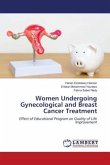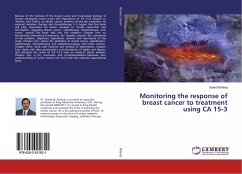Evolutionary Metabolic Hypothesis of Cancer (EMHC) explains the process of changing the normal cells into cancer cells as an evolutionary aspect. As this article explains, increasing the amount of Reactive Oxygen Species (ROS) results in the damage of mitochondria inside the normal cell which uses the oxidative phosphorylation to produce ATP and shutting down or damages in the mitochondria will result in the change of metabolic process of the normal cell to produce its energy from fermentation process in the cytosol. 1.5 billion years ago these process were the normal respiration of the cells, which did contain the nucleus, before the entrance of the mitochondria as an endosymbiont. Therefore, cancer cells are the eukaryotes in the primitive life were the oxygen may have not been present. EMHC hypothesis is the new insight in the state of cancer cells and can be assistant for further researches and researchers in oncology and cancer biology.








